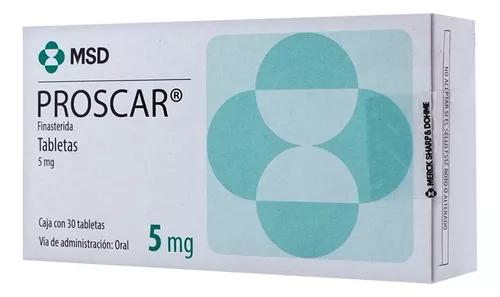Proscar: What Is It and How Does It Work?

Proscar: What Is It and How Does It Work?
If you've been prescribed Proscar or are considering treatment for prostate enlargement or hair loss, understanding how this medication works is crucial for making informed health decisions. At iMedix, we provide evidence-based medical information to help you navigate your treatment options.
What Is Proscar?
Proscar is the brand name for finasteride 5 mg, an FDA-approved prescription medication with two primary uses:
- Treatment of Benign Prostatic Hyperplasia (BPH): Non-cancerous prostate gland enlargement in men
- Management of Male Pattern Hair Loss (Androgenetic Alopecia): Though typically prescribed at a lower dose (1 mg) under the brand name Propecia
Key Facts About Proscar
- Drug Class: 5-alpha-reductase inhibitor
- Active Ingredient: Finasteride
- Standard Dosage: 5 mg tablet taken once daily
- Time to Effect: 3-6 months for BPH symptoms, 6-12 months for hair regrowth
How Proscar Works in the Body
Proscar works through a targeted hormonal mechanism:
1. Inhibition of DHT Production
The medication blocks the enzyme 5-alpha-reductase, which converts testosterone to dihydrotestosterone (DHT). DHT is a potent androgen hormone that:
- Stimulates prostate tissue growth in BPH
- Contributes to hair follicle miniaturization in male pattern baldness
2. Therapeutic Effects
By reducing DHT levels by approximately 70%, Proscar produces these benefits:
- For BPH: Shrinks enlarged prostate tissue, improving urinary flow and reducing symptoms like:
- Frequent urination
- Urgency
- Weak stream
- Nocturia (nighttime urination)
- For Hair Loss: Slows hair thinning and may promote regrowth in the vertex (crown) and mid-scalp areas
Proper Use of Proscar
For optimal results and safety:
- Take one 5 mg tablet daily, with or without food
- For hair loss, some clinicians prescribe quarter tablets (1.25 mg) as an off-label alternative to Propecia
- Consistent daily use is required for maintained benefits
- Effects are not immediate - patience is required
Important Safety Information
Proscar is contraindicated in:
- Women, especially those who are pregnant or may become pregnant (risk of fetal abnormalities)
- Patients with known hypersensitivity to finasteride
- Patients with severe hepatic impairment
All male patients should be aware of potential sexual side effects, which occur in about 3-5% of users.
What to Expect With Proscar Treatment
Clinical studies show:
- BPH patients: 30-50% reduction in prostate volume over 6-12 months
- Hair loss patients: Visible improvement in 60-80% of men after 1 year
- Effects are dose-dependent and reversible upon discontinuation
Stay informed, stay healthy!
— The iMedix Team
Post Your Ad Here